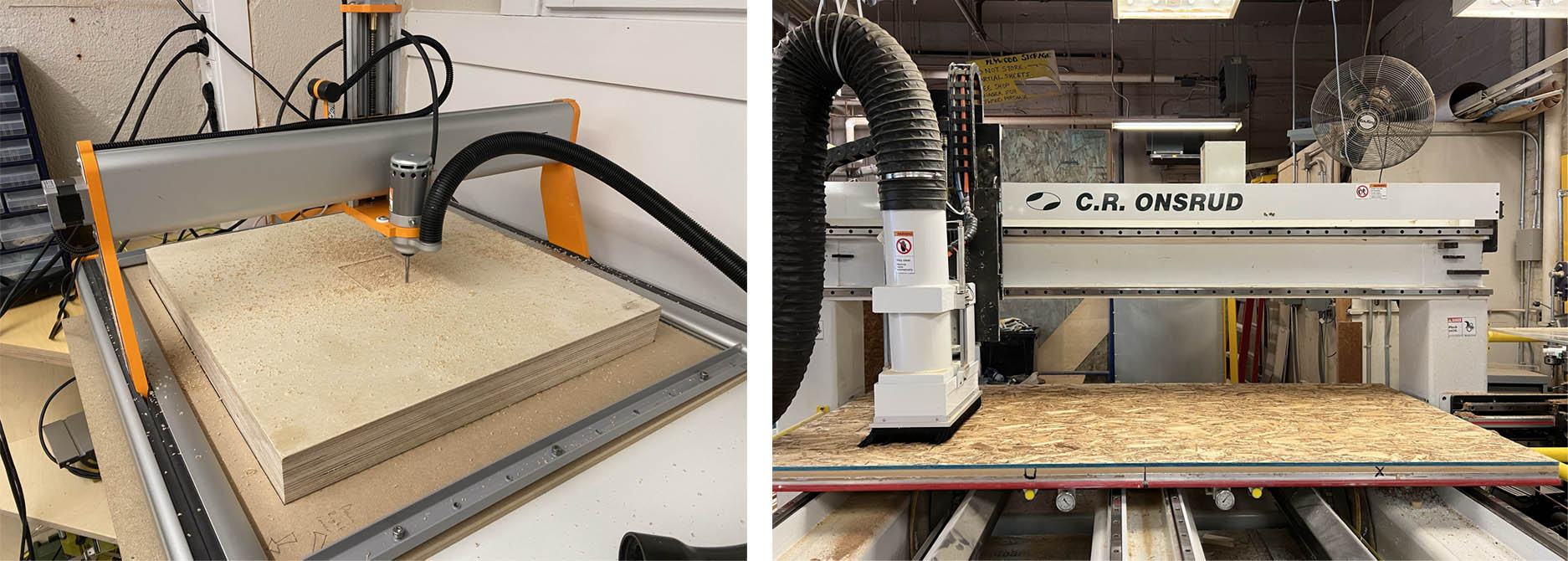
Kim
0
1
10
11
100
0101
0110
0111
1000
1001
1010
1011
1100
1101
1110
1111
final
*Chris, Thank you so much for your help teaching me Master CAM and operating a CNC machine.
I decided to make a bench that I could use for the dining table. Friend's birthday dinner and Friendsgiving close, so I want it to be strong enough to use it for a longer term. The problem is the given material, 1/2in OSB does not have structural durability for people to sit on the board. As Neil said in the class, it's compressed wood chips with short fibers with insufficient adhesive to hold them together.
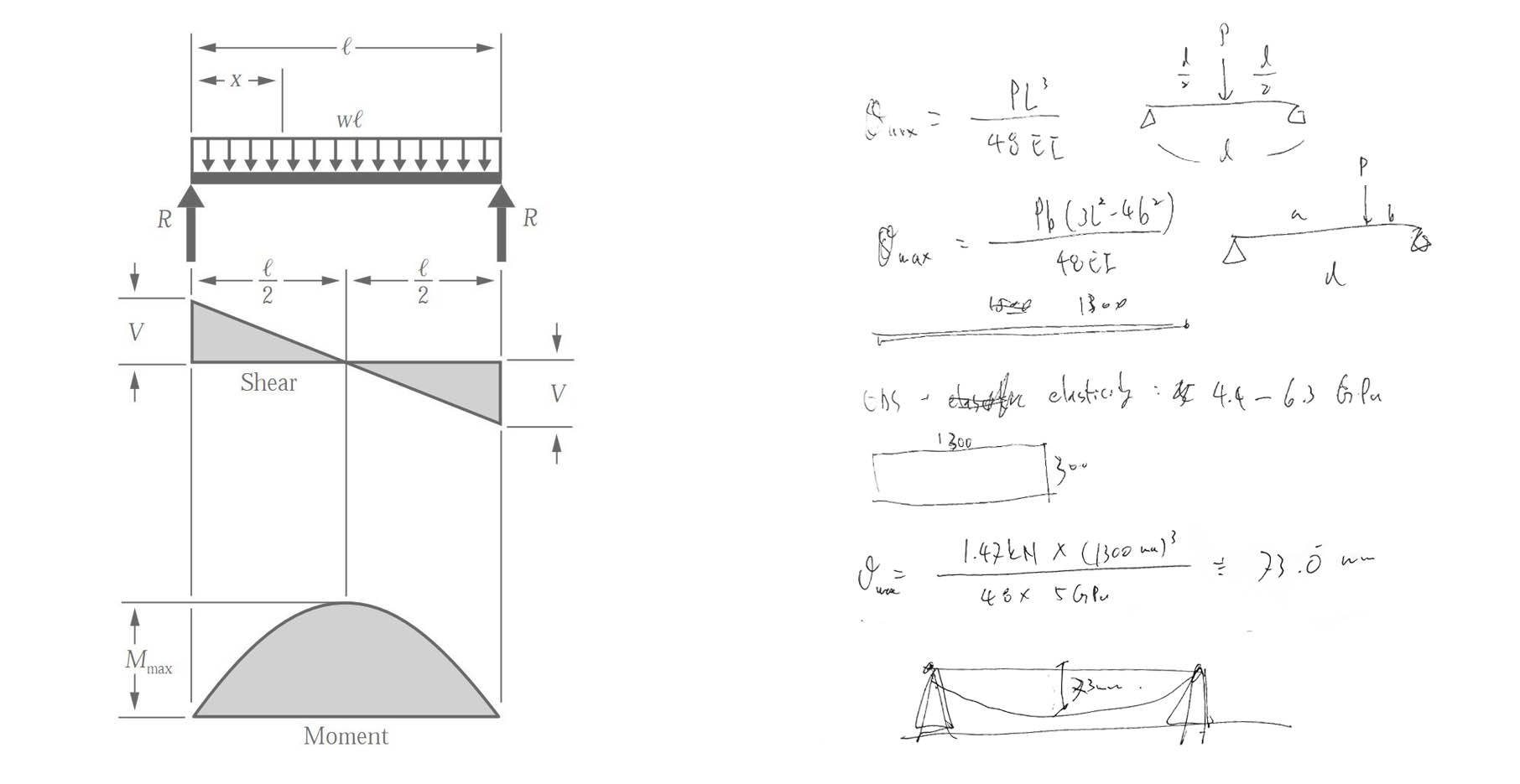
Therefore, I need to make a design that is efficient and strong (4X8ft board was not enough to make a bench with stacking methods. Also, I don't want heavy furniture). The start of the design was calculating the bending moment for the beam structure. The design is literally the form of the bending moment diagram of OSB elasticity and two-people point load.
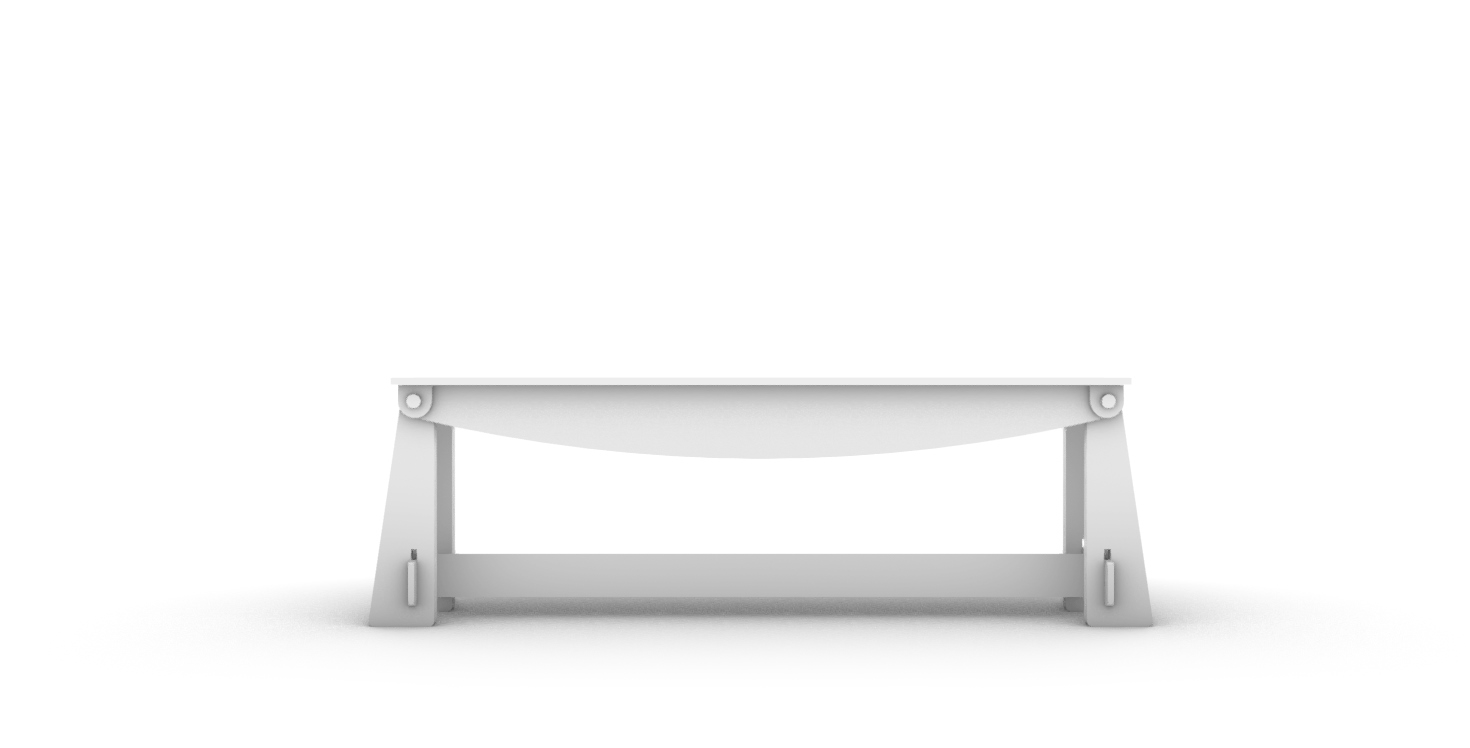
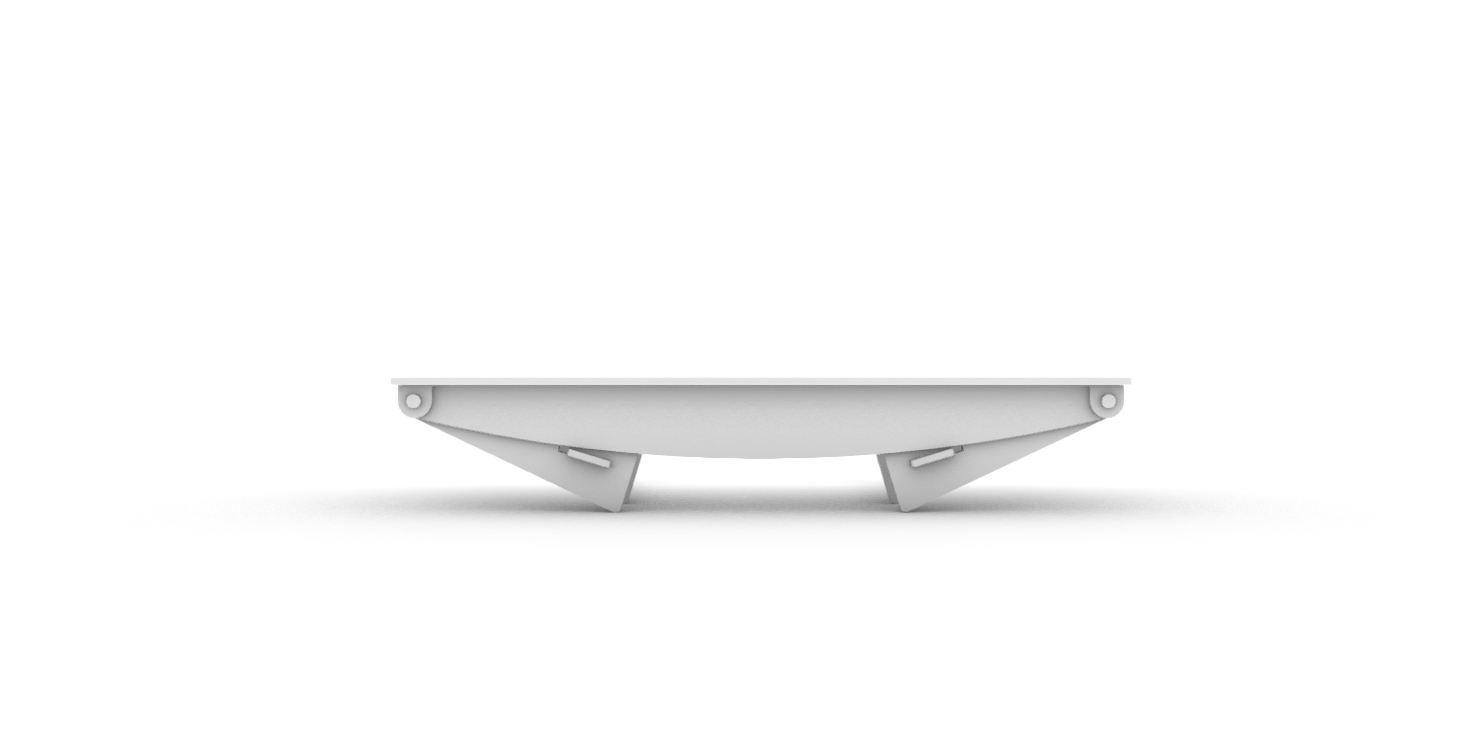
The design is about making a bench that can sit on or use as a tea table. The hinge point does not affect compression, but I needed a brace to resist the lateral force. This bench transforms into a table or compact form to move around.

When I was working for Link Arkitektur in Oslo, I used german hobby CNC machine Stepcraft D840 It was doing a great job, but it was not durable enough for the work I wanted to use. I am excited to use this indestructible C.R. Onsurd for this assignment and future milling. Since the C.R. Onsurd in N51 architecture shop has larger bits, it saves so much time for the roughing.
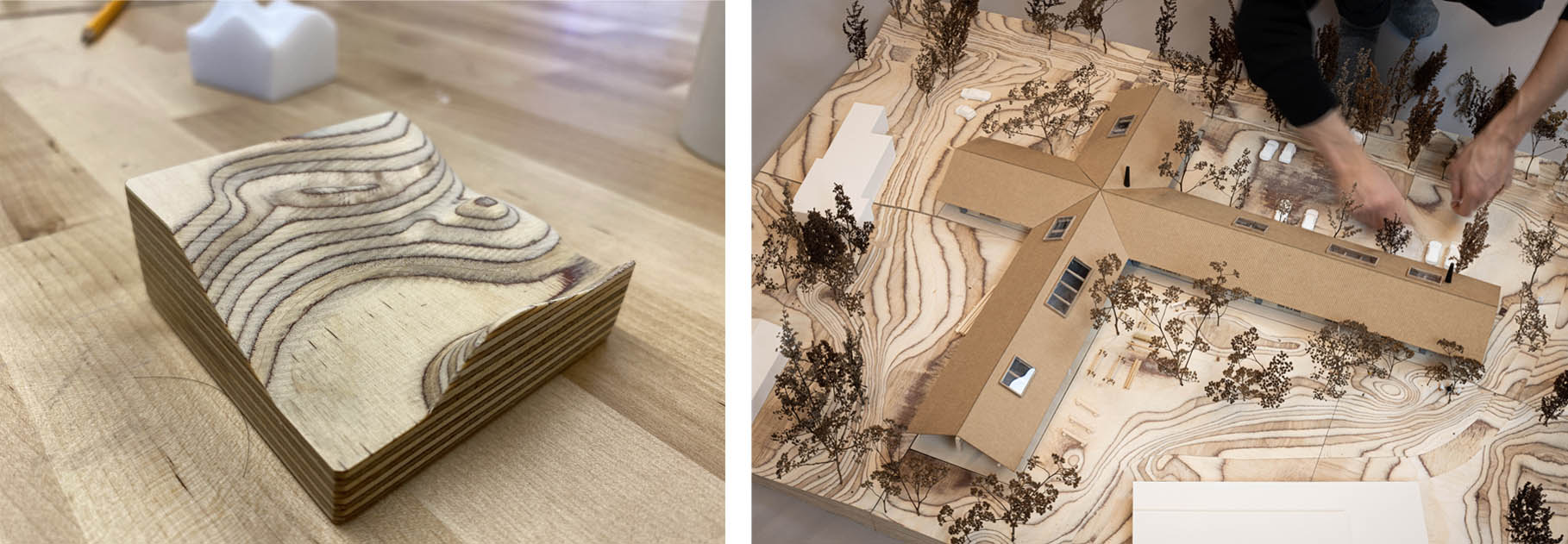
Above images are outcome of Stepcraft D840 with 8mm bit back in 2019. quality is good enough but it has limited performance depends on the scale of your job.
Another game-changer is the tool changing, and it makes complicated job sequences easier.
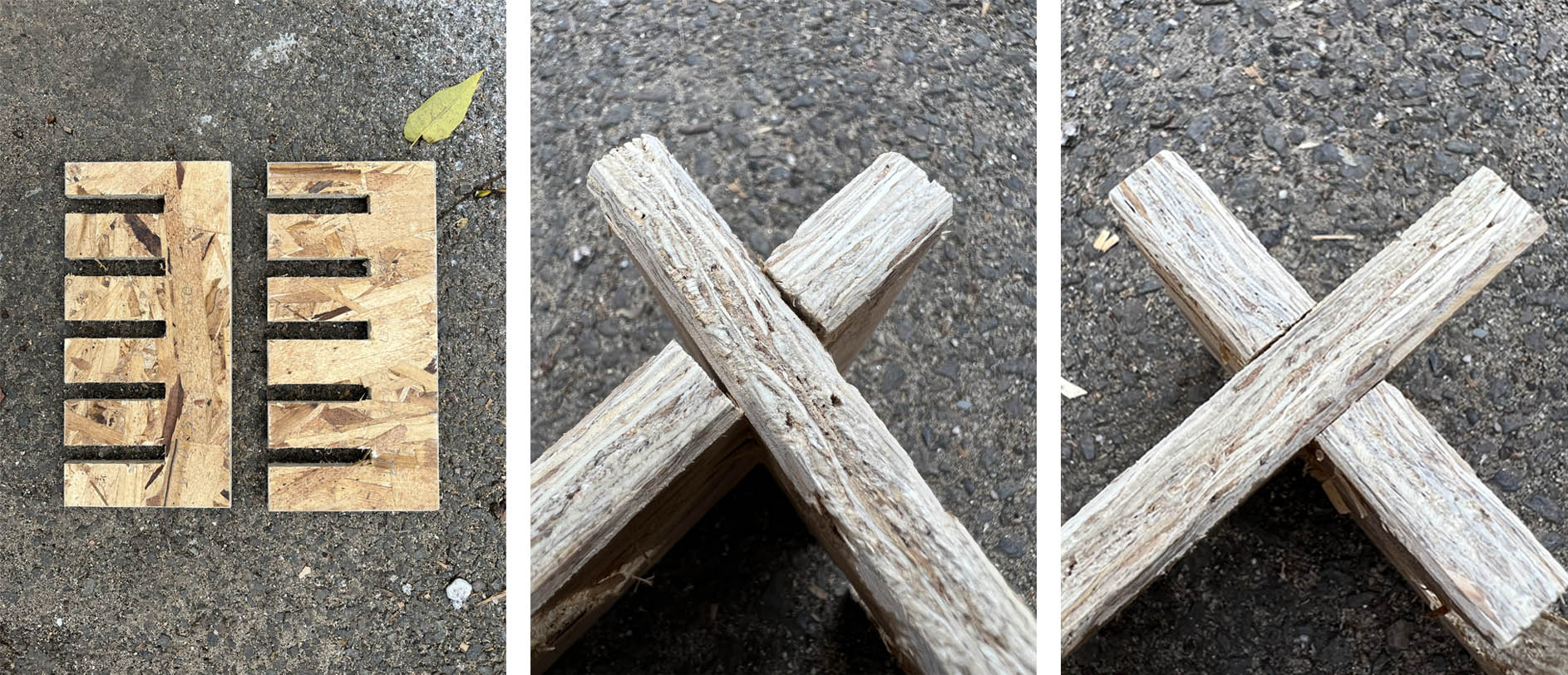
two plates with 0.49", 0.5", 0.51", 0.52", 0.53" slots / 0.53 X 0.53 / 0.49 / 0.49

Actual thickness of OSB board from Home Depot website.
CNC machine is milling the material with its milling bit. Therefore, even you're using the tiny diameter bit; the machine will leave the rounded corner for the inner corner cuts.
You can prevent this corner from making your joint too tight by creating a little over-cut(this project has holes at inner corners).

1. Standard drill 1/8in

2. Downcut profile 1/4in

3. L corner treatment with 1/8in milling bit
As Neil suggested, the cut paths genrated from Master CAM are leaving the 'Onion Skin,' which leaves thin material at the bottom of the board, holding parts so that it does not fly around.

When I was drawing a layout, I had a problem flipping the USD, and I found you have to flip in the schematic to keep the mill on the same side. Flipping components in the PCB Layout design section means you are milling on the backside of the PCB.

Before sanding edges.

After sanding edges.
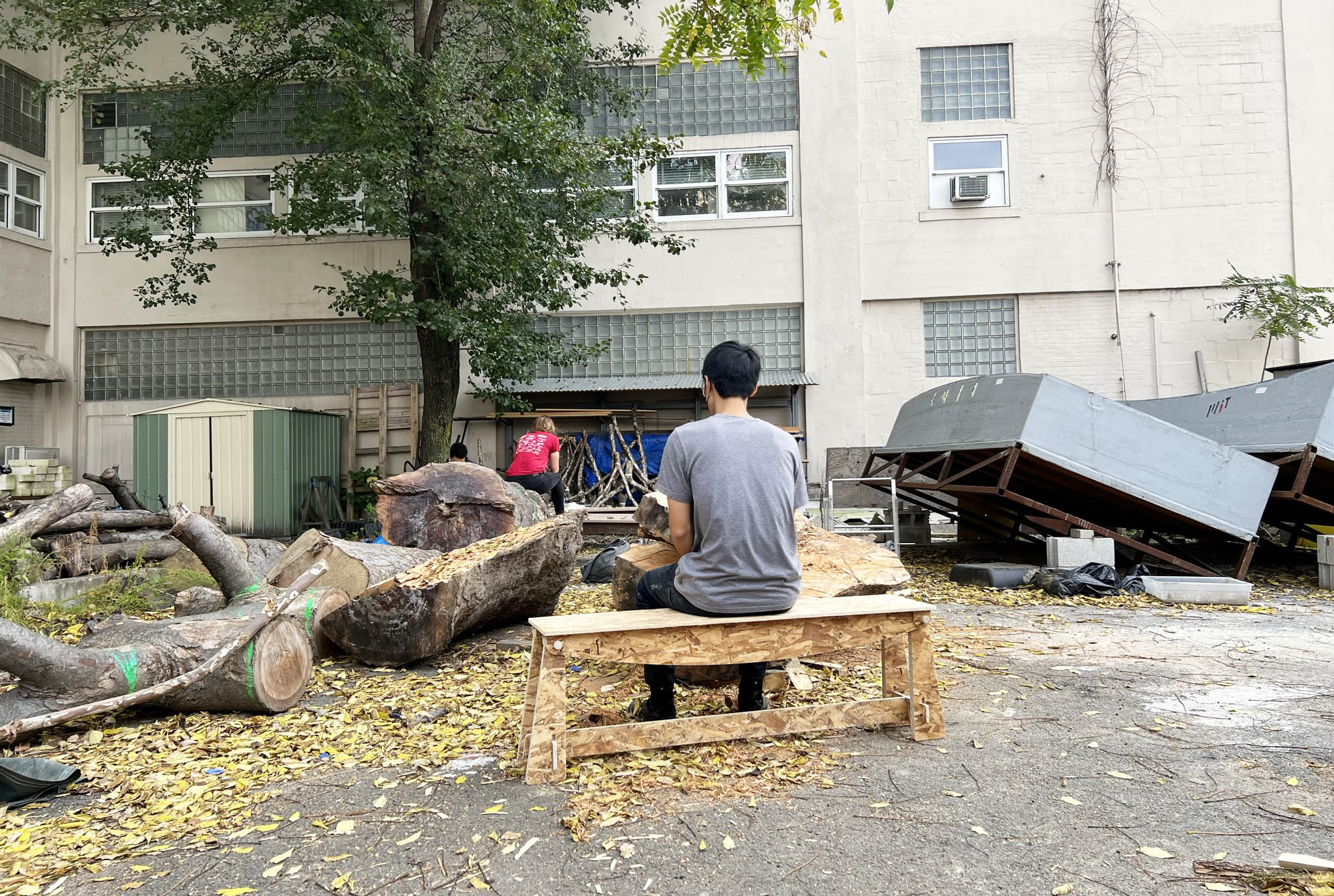
Bech

Bedch
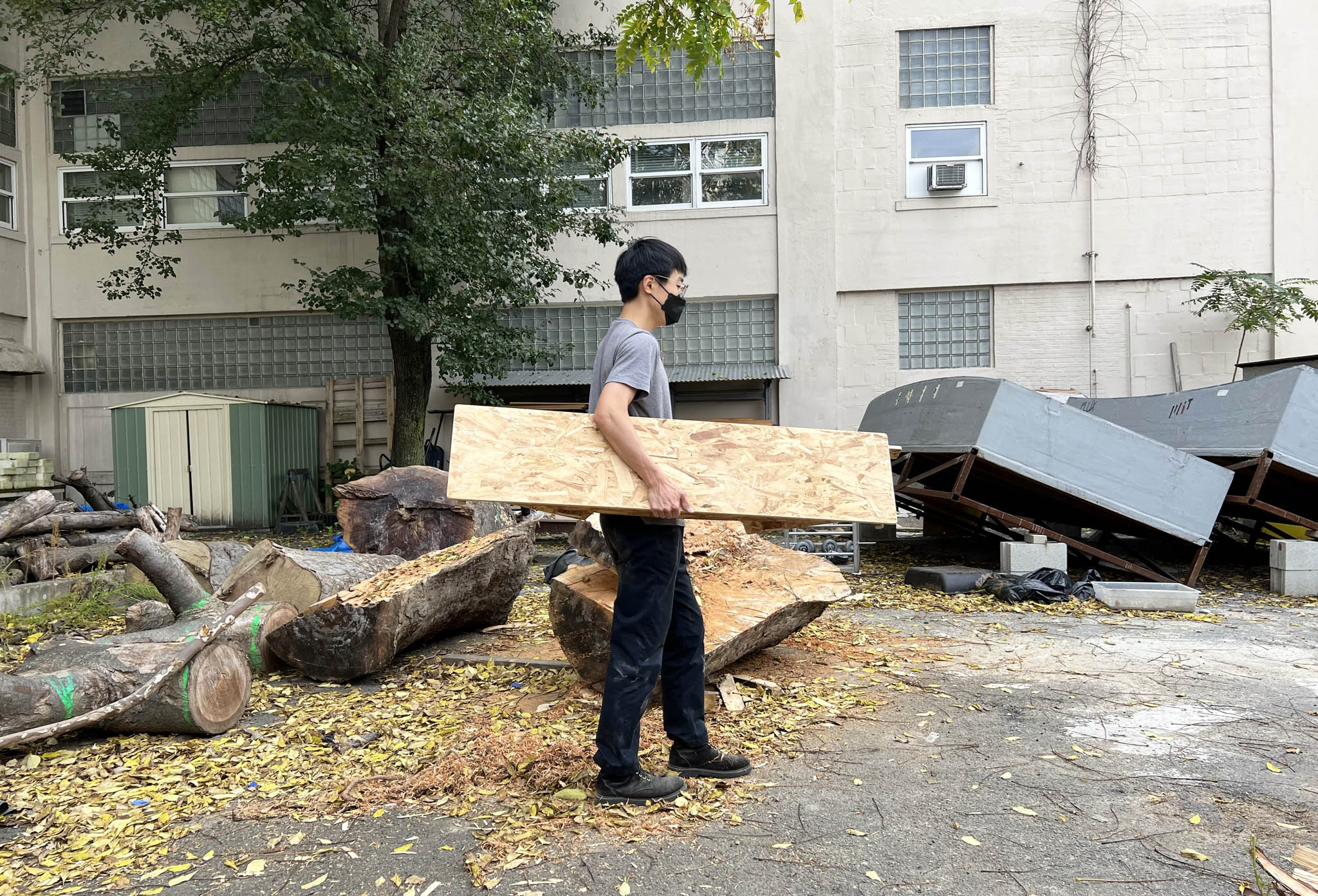
Moving
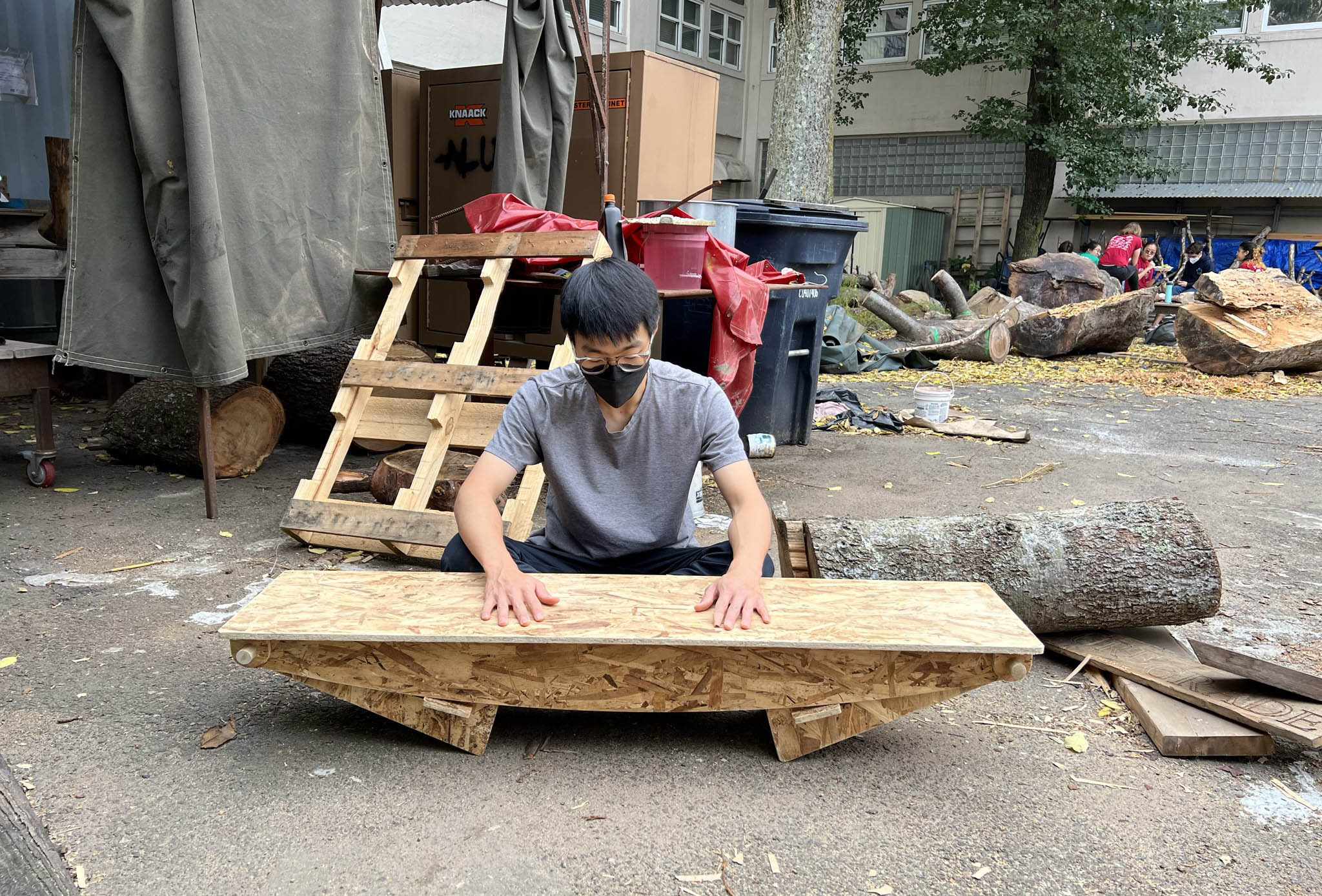
Tea table
C.R. ONSURD (CNC)
MAster CAM
Rhino3D
Files